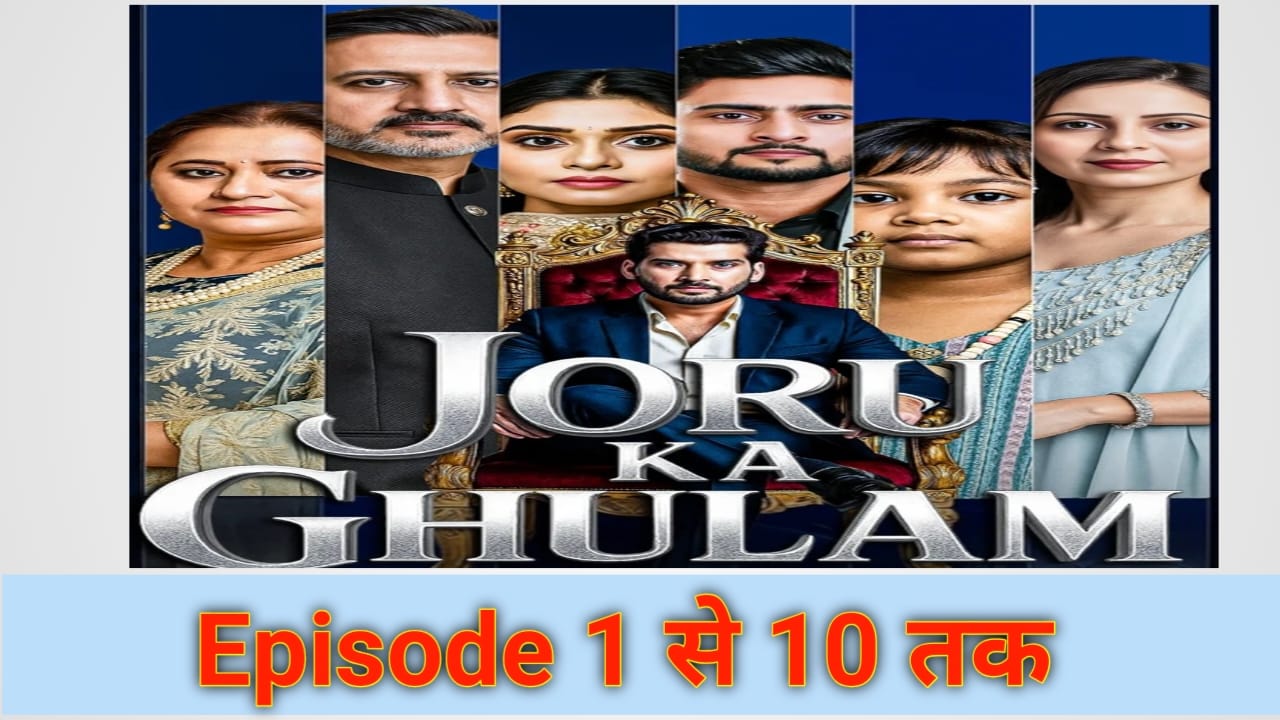By the time Joru Ka Ghulam reaches its midpoint, the light-hearted comedy begins to carry a deeper weight. The once playful tug-of-war between the husband and wife now takes a serious turn, pushing the characters toward realizations that could either break or strengthen their bond. This is where the story moves beyond laughter, into lessons about responsibility, family, and the hidden costs of ignoring long-term planning.
The Turning Point: Cracks in the Foundation
In one memorable sequence, the couple argues about redecorating their house. The wife dreams of a modern makeover—new furniture, stylish décor, even repainting the walls. For her, the house is a reflection of love and status. But the husband, already weighed down by debt, worries about how they will manage the expenses.
The argument escalates, and for the first time, their laughter-filled banter becomes truly emotional. The husband snaps, revealing the personal loans he has been hiding. The wife is shocked—not because of the debt, but because he didn’t trust her enough to share the truth. This moment marks a turning point. The house, which was once their safe space, now feels fragile.
Here, the metaphor of home insurance comes alive. Just as a house needs protection against fire, theft, or natural disaster, a relationship also needs protection from financial secrecy and mistrust. Without security, even the strongest foundation can begin to crack.
The Emotional Fallout
The revelation of hidden debt creates ripples in the family. The wife feels betrayed, the husband feels misunderstood, and the parents quietly worry about the family’s stability. What was once a series of humorous exchanges now becomes a deeply human struggle.
-
The husband represents silent sacrifice—always trying to shield others from burden, even at his own cost.
-
The wife represents emotional honesty—valuing trust and openness over silent endurance.
The fallout is painful but necessary. It forces them both to reflect: is love only about fulfilling demands, or is it about standing together in both joy and hardship?
The Layer of Family Expectations
At this point, extended family members enter the conflict. Parents remind the couple of their responsibilities toward future generations—children’s education, healthcare, and stability. The conversations shift from luxuries to necessities, from immediate pleasures to long-term commitments.
Here, the financial metaphor naturally extends to education loans. Just as the husband’s hidden debts weigh him down, the looming question of future expenses—like children’s schooling or higher education—becomes unavoidable. The wife, once carefree about spending, begins to realize the importance of planning ahead.
Education loans serve as a powerful symbol:
-
They represent investment in the future, just as couples invest in their relationship.
-
They also highlight the burden of unpreparedness—when planning is ignored, dreams come with a heavy price tag.

Episode -1
Episode -2
Episode -3
Episode -4
Episode -5
Episode -6
Episode -7
Episode -8
Episode -9
Episode -10
The Humor Returns, But With Depth
Even in this tense arc, the show doesn’t lose its comic charm. The husband’s attempts to explain his budgeting strategies, the wife’s dramatic reactions to cutting back expenses, and the relatives’ unsolicited advice all add humor. But now, every joke carries a weight. Viewers laugh, but they also nod in recognition, seeing their own lives reflected on screen.
For example, when the husband creates a “restricted budget list” for household spending, the wife mocks him by calling it a “diet plan for money.” The scene is funny, but it subtly emphasizes how discipline in finances is as essential as discipline in health.
Financial Parallels That Resonate
-
Home Insurance: The family home is not just bricks and walls—it’s a foundation of love, memories, and security. Without insurance, one unexpected event could erase years of hard work. The same applies to relationships: without honesty and trust, even the strongest bonds can collapse.
-
Education Loans: Just as children’s education shapes their future, financial planning shapes a family’s stability. Education loans, when planned carefully, are investments. But without foresight, they can become crushing burdens.
The Life Lesson Beneath the Story
The genius of Joru Ka Ghulam lies in how it uses humor to discuss serious issues. Couples see themselves in these conflicts—debating over expenses, hiding financial stress, dreaming of luxuries while worrying about the basics. The turning point reminds viewers that relationships are not just about happiness today but about building a secure tomorrow.
The emotional fallout between husband and wife also offers a universal lesson: love is not only about being a “ghulam” to your partner’s wishes. It is about being an equal partner in dreams, responsibilities, and planning. True devotion is not blind obedience; it is honest communication and shared responsibility.